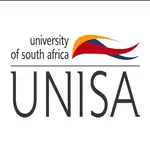UNISA Mathematics Course Module 2026-2027
You can register for the Mathematics program at UNISA, which offers a comprehensive range of modules across various levels of study. Below is a breakdown of the modules available at each NQF level:
NQF Level 5
MAT1512 – Calculus A: This module covers basic skills in differential and integral calculus essential for physical, life, and economic sciences, including applications.
MAT1503 – Linear Algebra I: Focuses on basic concepts in linear algebra including systems of linear equations, matrix operations, determinants, and vector spaces.
MAT1510 – Precalculus Mathematics A: This module develops skills in graphing and solving equations related to linear, quadratic, exponential, logarithmic, and trigonometric functions.
MAT1511 – Precalculus Mathematics B: Expands on precalculus concepts, emphasizing polynomial theory, systems of linear equations, matrices, and the complex number system.
MAT1514 – Precalculus (Engineering): Focuses on algebraic and trigonometric skills for analytical problem-solving in more advanced mathematics and related subjects.
MAT1581 – Mathematics I (Engineering): Covers algebra, trigonometry, calculus, complex numbers, coordinate geometry, matrices, and determinants.
NQF Level 6
MAT1613 – Calculus B: Builds on MAT1512 with more advanced techniques in differentiation and integration and applications in Mathematics.
MAT2611 – Linear Algebra 2: Advances concepts of vector spaces, matrix eigenvalues and eigenvectors, and linear transformations.
MAT2613 – Real Analysis I: Introduces concepts of sequences, series, limits, and differentiability of functions in real analysis.
MAT2612 – Introduction to Discrete Mathematics: Covers counting principles, relations, digraphs, functions, order relations and structures, and induction.
MAT2615 – Calculus in Higher Dimensions: Deals with vectors in n-space, partial derivatives, multiple integrals, and theorems of Green, Gauss, and Stokes.
MAT2691 – Mathematics II (Engineering): Focuses on differentiation, integration, first-order differential equations, numerical methods, and statistics.
NQF Level 7
MAT3701 – Linear Algebra III: Focuses on inner product spaces, invariant subspaces, operators, and their canonical forms.
MAT3702 – Abstract Algebra: Introduces algebraic structures, groups, homomorphism theorems, factor groups, Euclidean rings, and fields.
MAT3705 – Complex Analysis: Covers functions of a complex variable, complex differentiation and integration, and singularities.
MAT3706 – Ordinary Differential Equations: Teaches methods for solving homogeneous and non-homogeneous systems of differential equations.
MAT3707 – Discrete Mathematics: Combinatorics: Deals with graph theory and enumeration, including trees, networks, and counting principles.
MAT3700 – Mathematics III (Engineering): Explores differential equations, Fourier series, and eigenvalues for engineering applications.
MAT3711 – Real Analysis II: Expands on metric spaces, Riemann integral, and various theorems in real analysis.
MAT3714 – Mathematics III B (Engineering): Further explores differential equations, Laplace transforms, and Fourier series.
APM3715 – Numerical Methods for Civil Engineers A: Introduces numerical methods to solve engineering problems.
NQF Level 8 (Honours)
MAT4835 – Set Theory: Provides foundational knowledge in set theory, including axiomatic approaches.
MAT4836 – Topology: Introduces concepts of topology, such as convergence, continuity, and compactness.
MAT4837 – Introduction to Category Theory: Covers basics of category theory, functors, and natural transformations.
MAT4838 – Category Theory: Explores adjoint functors, limits, monads, and their applications in mathematics.
MAT4841 – Functional Analysis I: Focuses on linear and metric spaces, Banach spaces, and linear operators.
MAT4842 – Functional Analysis II: Advances concepts in Banach spaces and spectral theory of bounded linear operators.
MAT4843 – Ordinary Differential Equations I: Teaches qualitative methods for analyzing nonlinear ordinary differential equations.
MAT4844 – Ordinary Differential Equations II: Focuses on advanced analytical methods and qualitative methods in nonlinear systems.
MAT4845 – Graph Theory I: Introduces basic concepts and elementary theory in graph theory.
MAT4846 – Graph Theory II: Further explores graph theory topics, including planar graphs and graph colorings.
MAT4847 – Partial Differential Equations I: Covers analytical techniques for solving partial differential equations in mathematical physics.
MAT4848 – Partial Differential Equations II: Advances techniques for solving complex partial differential equations.
APM4813 – Advanced Engineering Mathematics: Teaches advanced mathematical concepts and techniques for engineering.
APM4814 – Numerical Methods for Civil Engineers II: Continues development of numerical methods for engineering problem-solving.
HRMAT82 – Honours Research in Mathematics: Focuses on conducting and presenting research in mathematics.
HRMMA82 – Honours Report in Mathematics Education: Guides students in undertaking and reporting research in Mathematics education.
MAT4857 – Matrix Theory and Linear Algebra I: Provides an integrated knowledge of concepts in linear algebra.
MAT4858 – Matrix Theory and Linear Algebra II: Continues the study of linear algebra with a focus on inner product spaces and bilinear transformations.
STE4803 – Research Methods in Mathematics, Science, and Technology Education: Introduces research methods in educational contexts.
For detailed information on each module, including pre-requisites and recommendations, you should refer to the UNISA course catalog or their official website.
Share This





